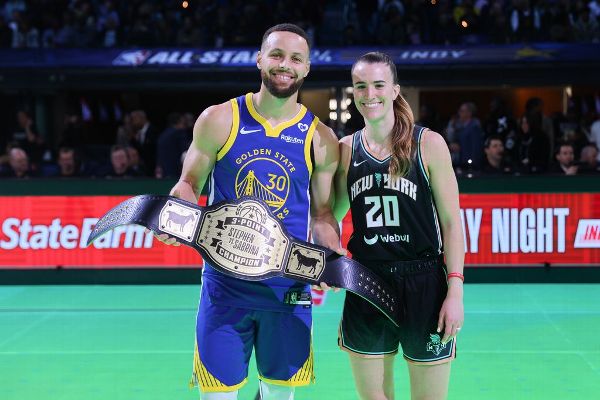Warriors star Stephen Curry's vision disease diagnosis draws attention to keratoconus

OAKLAND, California -- As the world watched Warriors star Steph Curry shoot his seemingly effortless 3-pointers, little did anyone know he was squinting and suffering from a disease that affected his vision called keratoconus.
Curry talked about his diagnoses at a press conference, as coach Steve Kerr jokingly played "I Can See Clearly Now" by Johnny Nash in the background on his phone.
But with one in every 2,000 people in the United States suffering from keratoconus, it's hardly anything to joke about.
Tammy Lee, a traffic producer at sister station KGO in San Francisco, knows how crippling this genetic disease can be. She presses her head to a computer monitor and squints.
"I could have my forehead practically on the screen, squinting to see all the letters," she said. "I would enlarge the screen 250-percent. In two years I went from having no major vision problems to not being able to see at all."
During these two years, Lee saw multiple doctors, all who gave her different prescriptions or offered expensive surgery that wasn't FDA approved.
"I lost that sense of independence of living my life the way I wanted to live it," she said. "I'm not going to lie, I did go through a depression."
It wasn't until the fifth doctor diagnosed Lee with keratoconus-- a thinning of the cornea which then bends the cornea into an irregular cone shape and causes a rapid degenerative astigmatism.
While Curry was still able to shoot 3-pointers with his condition, which Dr. Maanasa Indaram, assistant professor of ophthalmology at the University of California San Francisco, says was most likely caught early -- left untreated can have dire consequences.
"If the cornea becomes so thin and so progressed, it can actually perforate, which means it can result in blindness," Dr. Indaram said.
Dr. Indaram says most people discover they have keratoconus in their early 20's but it can be difficult to diagnose -- so awareness is crucial.
"Having prescriptions that frequently change...light sensitivity, glare and halos, all of these things are sort of non-specific and hard to pinpoint," Dr. Indaram said.
While there is an FDA approved procedure called "crosslinking" available for the most severe cases, many instances can be corrected with special contact lenses, which is what Lee ultimately did. The hard lenses were challenging to get used to at first, the payoff to have drastically improved vision was well worth it. She has this advice to anyone suffering from seemingly common vision problems.
"Be persistent and be your own advocate," she said. "Don't go with just the first thing people say."
----------








